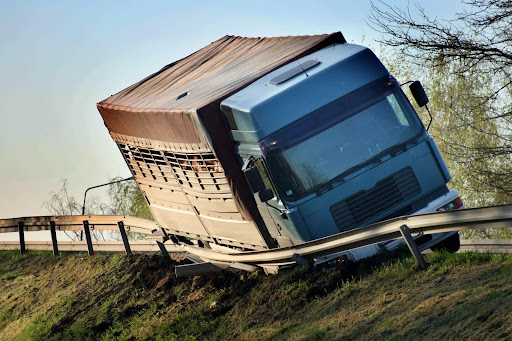Understanding Louisiana Trucking Laws And How They Protect You

As the foundation of American commerce, the trucking industry is strictly regulated to ensure that safety is at the forefront of every mile driven. When truck drivers and the companies that employ them violate these regulations, it is possible to hold these parties accountable for their negligence. At Louisiana Law Lady, our attorney is dedicated to leveraging Louisiana trucking laws to protect accident victims. To learn more, consider booking your free case review at (504) 470-3511 today.
Licensing Laws
Louisiana law states that a Commercial Driver’s License (CDL) is required to operate a commercial truck. To obtain a CDL, drivers must submit an application, provide proof of residency, and complete a driving record check. After a written knowledge exam, a commercial driver’s permit is first issued, which allows the driver to practice under the supervision of a CDL holder. After 14 days, the permit holder may then take a driving test to obtain their CDL. Driving tests follow the protocol set forth in Revised Statutes Title 32, Section 408.

Training Regulations
The Federal Motor Safety Carrier Administration has established Entry Level Driver Training regulations to ensure that new drivers are equipped with the skills and knowledge required for the job.
Age Requirement to Obtain a CDL
Drivers operating a motor vehicle within the state of Louisiana (intrastate) must be 18 years or older to obtain a CDL. If the driver plans to operate the vehicle outside of Louisiana (interstate), they must be 21 years or older.
CDL Revocation or Suspension
Commercial truck drivers are subject to unique rules and regulations. For instance, receiving multiple serious traffic citations will result in a three-year license revocation. Serious traffic citations may include speeding in excess of 15 miles per hour of the speed limit, texting while driving, improper lane changes, driving without a CDL, or any traffic violation that results in a fatality. Certain citations, like driving under the influence, refusal to submit a chemical test, or using a motor vehicle in the commission of a felony offense, will lead to a one-year license disqualification.
Hours of Service Regulations
The Federal Motor Safety Carrier Administration has strict hours of service regulations that dictate how long a driver can operate a motor vehicle in an on-duty shift as well as mandatory break requirements to prevent driver fatigue. According to these hours of service regulations:
- A driver cannot drive past the 14-hour mark following a minimum 10-hour off-duty break.
- Within a 14-hour on-duty shift, a driver cannot drive for more than 11 consecutive hours.
- Once a driver has driven for 8 consecutive hours, they must take a 30-minute rest break.
- A driver may not drive after 60/70 hours on duty in 7/8 consecutive days. This 7/8 consecutive date period will restart after taking 34 consecutive hours or more off-duty.
If a driver is found in violation of these hours of service regulations, they can face fines, civil penalties, or other enforcement actions. Multiple violations of the hours of service regulations can result in loss of driving privileges.
Truck Maintenance Laws
According to 49 CFR 396, trucking companies or equipment providers must inspect, repair, and maintain their trucks to ensure that all parts and components are in safe operating condition. Unfortunately, truck drivers and trucking companies have been found cutting corners to protect their bottom line. If a driver or company is found to be in violation of federal truck maintenance laws, and their negligence played a direct role in your accident, you may be able to hold them accountable for the resulting damages.
Commercial Vehicle Liability Policies
Revised Statutes Title 32, Section 900 states that owners or operators of regular vehicles must maintain an automobile liability policy that covers $15,000 for accidents resulting in bodily injury to or death of one person, $30,000 for accidents resulting in bodily injury to or death of two people, and $25,000 for accidents resulting in damage to or destruction of property.
These limits are much lower than those required for commercial motor vehicles. There are different minimum liability limits for commercial motor vehicles in Louisiana, depending on whether they are interstate or intrastate and what kind of load they are hauling. However, the minimum is typically $750,000, with the average 18-wheeler having $1,000,000 in liability limits (combined for all victims of the wreck).
Speak with an Experienced Louisiana Trucking Accident Lawyer Today
By adhering to these federal and Louisiana trucking laws, drivers and the companies that employ them can ensure that they operate safely and legally. While this can help prevent accidents on Louisiana roads, collisions still happen.
At Louisiana Law Lady, our attorney leverages her in-depth knowledge of federal and state trucking laws to protect the rights of accident victims. Let us help you secure the compensation you deserve. To learn more, consider scheduling your free case review by texting or calling us at (504) 470-3511 today.